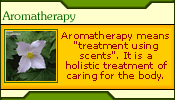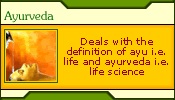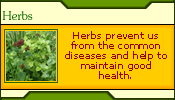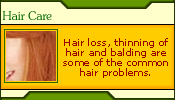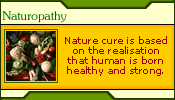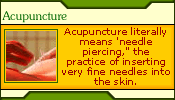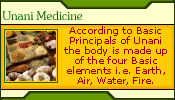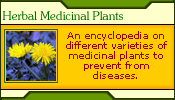|
Chronic anxiety disorders can benefit by treatment from a trained
homeopath. But for short episodes of transient, self-limited anxiety,
you can use the appropriate remedies.
Aconite is the medication of choice if your anxiety is the result
of a sudden fright or shock. If you are grief stricken (such as
when one of your loved ones die), the homeopath may give you ignatia.
In situations such as stage fright and other anticipatory and performance
anxiety, gelsemium is recommended. If you have anxiety accompanied
by diarrhea, gelsemium is the preferred choice. Other homeopathic
remedies are described below.
Begin with a 6x potency and take two tablets every two to four
hours depending on the severity, or acuteness, of the illness. Once
you begin to notice improvement, increase the intervals between
dosages, and when it seems that improvement is well on its way,
discontinue the treatment. If you use a remedy longer than necessary,
it might tend to cause the symptoms to recur.
Take your remedy with a clean mouth free from drink, food, tobacco,
toothpaste, or mouthwash. Allow the tablet or granules to dissolve
in your mouth rather than swallowing them with water, and do not
ingest anything except water for fifteen minutes after taking the
remedy.
Homeopathic Remedies for Anxiety Disorders
The following remedies may be useful to you in treating symptoms
of anxiety.
Aconite
Argentum nitricum
Arsenicum album
Calcarea carbonica
Gelsemium
Ignatia amara
Kali phosphoricum
Lycopodium
Natrum muriaticum
Phosphorus
Pulsatilla
Silicea
Aconite (Aconitum napellus)
A panic attack that comes on suddenly with very strong fear (even
fear of death) may indicate this remedy. A state of immense anxiety
may be accompanied by strong palpitations, shortness of breath,
and flushing of the face.
Symptoms
Sudden, intense ailments from fright.
Anxiety and restlessness with complaints.
Fears that do not subside.
Faintness or dizziness upon waking up.
Sudden fever with one cheek red, the other pale
Intolerance of pain.
Painful urination with anxiety
Pains followed by numbness and tingling.
Eye pain and injuries
Throbbing headache.
Unquenchable thirst.
Argentum nitricum (Arg-n)
This remedy is indicated when anxiety develops before a big event.
(Examples: an interview for job, an exam, a public speech, social
engagement, marriage, etc.).
Symptoms
Emotional upset
Fear
Anxiety
Extended period of unusual or continued mental exertion
Dizziness
Diarrhea
Craving for sweets and salt. Craving for strong flavors.
Enthusiastic and suggestible, with a tendency toward peculiar thoughts
and impulses.
Arsenicum album (Arsenicum, Ars)
This remedy is recommended for people who are deeply anxious about
their health, and extremely concerned with order and security. Panic
attacks often occur around midnight or the very early hours of the
morning. The person may feel exhausted yet still be restless-fidgeting,
pacing, and anxiously moving from place to place. These people may
also have digestive problems or asthma attacks accompanied by anxiety.
They are typically obsessive about small details and very neat.
They may feel a desperate need to be in control of everything.
Symptoms
Anxious
Anxiety associated with later stages of head cold, with sneezing
Asthma worse after midnight, fears suffocation while lying down
Fearful
Irritable
Restless
Sleepiness but insomnia
Thirsty for frequent small drinks
Weak and exhausted
Desires air but sensitive to cold
Vomiting with or without diarrhea after eating and drinking
Calcarea carbonica (Calc)
People who benefit most from this remedy have a chilly constitution.
The slightest cold "goes right through them." They have
trouble keeping themselves warm. They have a craving for sweets,
and are easily fatigued. They are dependable, solid people who become
overwhelmed from physical illness or too much work and start to
fear a breakdown. Their thoughts can be muddled and confused when
tired, which adds to the anxiety. Worry and bad news may agitate
them, and a nagging dread of disaster (to themselves or others)
may develop. Fear of heights and claustrophobia are also common.
Symptoms
Increased perspiration
Night sweats
Cold hands and feet
Dizziness
Nausea
Ravenous hunger
Aversion to fats
Craving for eggs
Eyes sensitive to light
Pale face
Large appetite with slow digestion
Gelsemium (Gels)
This remedy is indicated when you have feelings of weakness, trembling,
and mental dullness (being "paralyzed by fear"). It is
also useful when a person experiences anxiety about an upcoming
event such as stage-fright about a public performance or interview,
or anxiety before a test, impending visit to the dentist, or other
stressful events. Chills, perspiration, diarrhea, and headaches
will often occur with nervousness. Fear of crowds, a fear of falling,
and even a fear that the heart might stop are other indications
for Gelsemium.
Symptoms
Nervousness
Apprehension
Anxiety prior to an examination or public performance
Fatigue and aching of whole body
Limbs, head, eyelids heavy
Headache
Scalp sore to touch
Sore throat
Lack of thirst
Dizziness, trembling, fatigue, dullness
Ignatia amara (Ignatia, Ign)
A sensitive person who is anxious because of grief, loss, disappointment,
criticism, loneliness (or any stressful emotional experience) may
benefit from this remedy. The primary factor for this remedy is
emotional stress, especially disappointment or grief. Other indications
are a defensive attitude, frequent sighing, and mood swings. The
person may burst unexpectedly into either tears or laughter.
Symptoms
Vomiting
Sensation of a lump in the throat
Chills with fever
Thirst during chills
Chills relieved by warmth
Cramping pains in the abdomen or back
Headaches that feel like a nail driven into the side of the head
Skin very sensitive to drafts
Introspective
Sad
Brooding
Tearful
Rejects company
Disappointed
Grieving
Insomnia from emotional distress
Nausea relieved by eating
Eating intensifies hunger
Kali phosphoricum
Indicated when a person has been exhausted by overwork or illness.
Feels a deep anxiety and inability to cope. Jumpy and oversensitive.
May be startled by ordinary sounds. Hearing unpleasant news or thinking
of world events can aggravate the problems. Insomnia and an inability
to concentrate may develop, increasing the sense of nervous dread.
Eating, warmth, and rest often bring relief.
Symptoms
Exhaustion
Deep anxiety and inability to cope
Headaches
Jumpy and oversensitive
Startled by ordinary sounds
Backaches
Nervous digestive upsets
Lycopodium (Lyc)
Lycopodium patients attempt to cover an inner sense of inadequacy
by putting up fronts, by pretending to be something they are not.
They feel anxiety from mental stress and suffer from a lack of confidence.
They can be self-conscious and feel intimidated by people they perceive
as powerful. They can feel a deep anxiety and fear of failure, when
they take on responsibility. They usually do well, once started
on a task.
Symptoms
Shakes head without any apparent cause
Facial contortions
Gassy, constipation or diarrhea
Sour belching
Claustrophobia
Irritability
Digestive upsets with gas and bloating
Craves sweets, warm food and drink
Night cough
Wants to be alone
Cranky on waking
Bullying tendency
Fear of failure
Breaking down under stress
Natrum muriaticum (Nat mur)
The primary candidates for this remedy are personally aloof but
have a social conscience and a desire to help others. Deep emotions
and a self-protective shyness can make these people seem reserved,
aloof, and private. Even when feeling lonely, they tend to stay
away from social situations, not knowing what to say or do. Easily
hurt and offended, they can brood, bear grudges, dwell on unhappy
feelings, and isolate themselves. They refuse consolation even when
they want it. They are often sympathetic listeners to other people's
problems. Claustrophobia, anxiety at night (with fears of robbers
or intruders), migraines, and insomnia are often seen when this
remedy is needed.
Symptoms
Tongue feels dry
Mucous membranes dry
Nausea
Insomnia
Claustrophobia
Migraine headache
Vomiting
Pains around eyes
Craves salt and dry foods
Weepy but won't let others see it. (Wants to be alone to cry.)
Consolation aggravates them
Angry from isolation
Fright, grief, anger
Nervous, discouraged, broken down
Depressed
Phosphorus
Indicated when the victims are openhearted, imaginative, excitable,
easily startled, and full of intense and vivid fears. Strong anxiety
can be easily triggered just by thinking of almost anything. They
are nervous and sensitive to others. They can overextend themselves
with sympathy to the point of feeling exhausted and "spaced
out" or even getting ill. They need a lot of company and reassurance.
They often feel better from conversation or a back-rub. Easy flushing
of the face, palpitations, thirst, and a strong desire for cold,
refreshing foods are other indications for Phosphorus.
Symptoms
Anxious
Fearful
Weak
Associated with hoarseness
Tight heavy chest
Dry rasping cough
Burning pains in stomach, abdomen, between shoulder blades
Thirst for cold drinks that are vomited
Nausea
Night sweats
Pulsatilla (Puls)
People who need this remedy often express anxiety as insecurity
and clinginess, with a need for constant support and comforting.
They fear being alone. They are easily discouraged, moody, tearful,
whiny, even emotionally childish. Getting too warm or being in a
stuffy room often increases anxiety. Anxiety around the time of
hormonal changes (puberty, menstrual periods, or menopause) often
is helped with Pulsatilla.
Symptoms
Sensitive
Weepy
Wants attention and sympathy
Changeable symptoms and moods
Craves open air
Sensitive to heat
Dry mouth with lack of thirst
Rich food upsets stomach
Insomnia from recurring thought
Head colds
Loose cough, worse at night
Delayed menstrual period with scanty flow
Silicea (Silica)
Indicated for those who are capable and serious, yet are also nervous,
shy, and subject to bouts of temporary loss of confidence. Anxiety
can be extreme when they are faced with a public appearance, interview,
examination, or any new job or task. Worry and overwork can bring
on headaches, difficulty concentrating, and states of exhaustion,
oversensitivity, and dread.
Symptoms
Worry
Overwork
Headaches
Difficulty concentrating
Exhaustion,
Oversensitivity
Overreact and devote attention to tiny details
Low stamina
Frequently catch colds, sore throats, or other illnesses.
|


